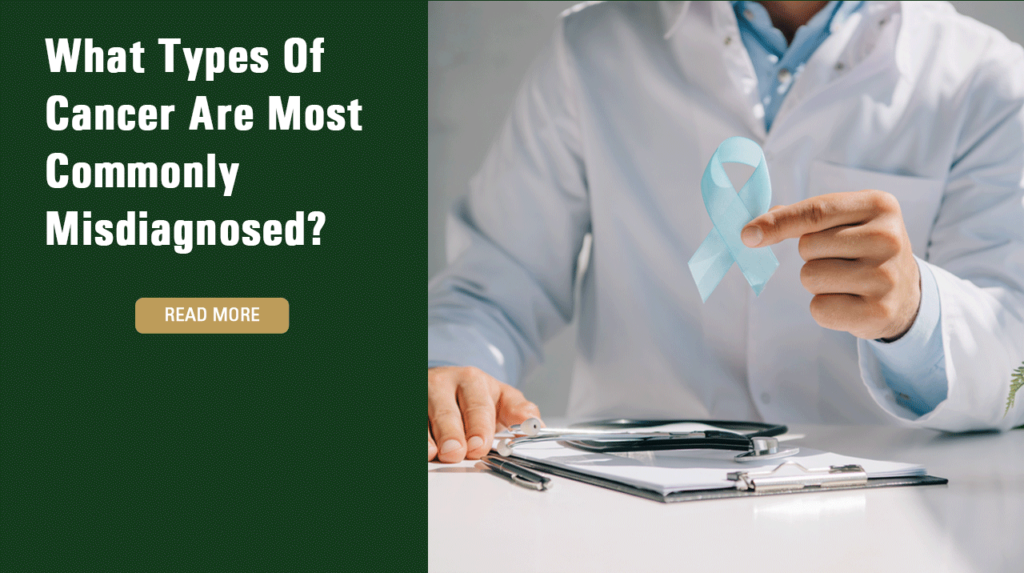What Types Of Cancer Are Most Commonly Misdiagnosed?

Cancer is a serious disease that kills many people each year. Unfortunately, some doctors fail to accurately diagnose cancer in its early stages, allowing cancer to spread. This can cause the patient’s chances of survival to greatly diminish and result in serious harm. According to the U.S. Centers for Disease Control and Prevention (CDC), more than 1.6 million people in the U.S. are diagnosed with cancer each year. Unfortunately, 600,000 people also die from cancer each year. While you might not want to learn that you have cancer, receiving a delayed diagnosis is more serious because early detection and treatment might increase your chances of surviving.
Receiving the wrong diagnosis or a delayed diagnosis can mean that you might miss out on receiving potentially life-saving treatment. While the majority of doctors are conscientious in their provision of care, cancer misdiagnoses are far too common. Here is what you need to know about the types of cancer that are most commonly misdiagnosed by the attorneys at Raynes & Lawn.
Cancer Misdiagnosis Statistics
Numerous studies have been completed on the rate of misdiagnoses of serious diseases, including cancer, in various settings. A study published in the BMJ Journals found that diagnostic errors were identified in 28% of intensive care cases. Another study reviewed diagnostic errors in outpatient settings and found that 46% of the cancer diagnostic errors involved missed diagnoses, and 76% involved failures to order appropriate diagnostic tests. Overall, research has shown a misdiagnosis rate for cancer ranging from 10% to 28%.
Common Types Of Cancer That Are Misdiagnosed
While all types of cancer can be misdiagnosed, certain types are more frequently missed by doctors. Some types of cancer have similar symptoms to other diseases. For example, lung cancer has similar symptoms to other respiratory diseases such as tuberculosis. Some types of rare cancer might not be recognized by doctors.
The following types of cancer are the most commonly misdiagnosed:
- Breast cancer
- Colorectal cancer
- Lung cancer
- Lymphoma
- Melanoma
- Mesothelioma
- Rare types of cancer
- Thyroid cancer in children
Types Of Diagnostic Errors Involving Cancer
There are several ways cancer misdiagnoses can occur. The various types of diagnostic errors can have different consequences as described below.
1. Diagnosing The Wrong Type Of Cancer
The treatments used for different types of cancer vary. Some types of cancer respond better to different medications, chemotherapy, or radiation than others. If you are diagnosed with the wrong type of cancer, you might receive the wrong treatment. This can result in injury while your existing cancer continues to progress.

2. Wrongly Ruling Out Cancer
Some diagnostic errors involve doctors failing to diagnose cancer or ruling it out and diagnosing patients with different, unrelated conditions. If your cancer is undiagnosed, it will continue to progress and might reach a stage at which you will no longer be amenable to treatment.
3. Diagnosing Cancer When It Doesn’t Exist
If a doctor wrongly diagnoses you with cancer when you don’t have it, you might be subjected to unnecessary, expensive, and harmful treatments. The treatments can cause you to suffer significant expense, pain, and suffering.
Signs Of Cancer Misdiagnosis
It can be difficult to determine whether your diagnosis is accurate. If you do not show any improvement or suffer worsening symptoms following treatment, you might have been misdiagnosed. It is important to note that cancer treatment does not always result in the desired outcome even with an accurate diagnosis. However, if your doctor fails to order additional tests or investigate other treatment options, you should ask for a second opinion.
Some of the signs that might indicate a cancer misdiagnosis include the following:
- Your doctor failed to ask for a thorough medical history of both you and your family members before diagnosing you
- Your doctor refused to consider other alternatives when your medication or treatment was ineffective
- Your doctor diagnosed you with cancer after minimal tests based on limited information
- Your doctor did not listen to your concerns after you were initially diagnosed
- Common Causes of Cancer Misdiagnosis
- Some of the common causes of cancer misdiagnosis include the following:
- Failure to perform lung cancer screens on a non-smoker with lung cancer symptoms
- Diagnosing a patient with a different disease based on similar symptoms without ruling out cancer
- Administering a test improperly
- Recording the wrong results in the lab
- Failing to take a thorough medical history
- Failing to recommend routine screening tests
- Failing to refer patients to specialists when further testing is needed
How To Reduce Your Chance Of Cancer Misdiagnosis
There are several things that you can do to decrease your risk of having breast cancer misdiagnosed or receiving other types of cancer misdiagnoses. Make sure to keep up with all routine screenings, including mammograms and colonoscopies. Many women forgo breast cancer screenings or put them off. Similarly, men might forgo screenings for prostate cancer.
When you meet with your doctor, do the following things to aid him or her in making a more accurate diagnosis:
- Give your doctor your complete medical history, including your family’s medical history.
- Provide your doctor with a complete list of all of your medications, including over-the-counter drugs and herbal supplements.
- Tell your doctor about patterns in your family involving hypertension, heart disease, and cancer.
- Accurately describe your symptoms, including when they started and how long they have persisted.
- Keep records of any changes in your medications or health.
- Ask questions about your treatment plan and care.
- Get a second opinion if you are diagnosed with a serious condition.
Talk To Raynes & Lawn
If you received a misdiagnosis of cancer and have suffered harm as a result, you should consult an experienced Philadelphia medical malpractice attorney at Raynes & Lawn. Call us today for a free case evaluation at 1-800-535-1797.

For the general public: This Blog/Website is made available by the law firm publisher, Raynes & Lawn, for educational purposes. It provides general information and a general understanding of the law but does not provide specific legal advice. By using this site, commenting on posts, or sending inquiries through the site or contact email, you confirm that there is no attorney-client relationship between you and the Blog/Website publisher. The Blog/Website should not be used as a substitute for competent legal advice from a licensed attorney in your jurisdiction.
For attorneys: This Blog/Website is informational in nature and is not a substitute for legal research or a consultation on specific matters pertaining to your clients. Due to the dynamic nature of legal doctrines, what might be accurate one day may be inaccurate the next. As such, the contents of this blog must not be relied upon as a basis for arguments to a court or for your advice to clients without, again, further research or a consultation with our professionals.
